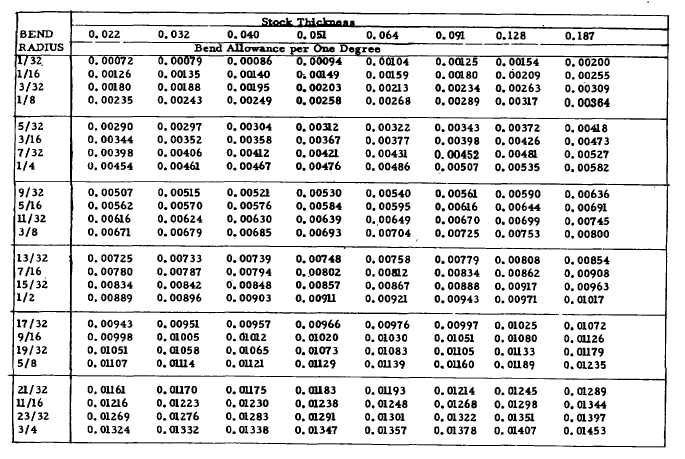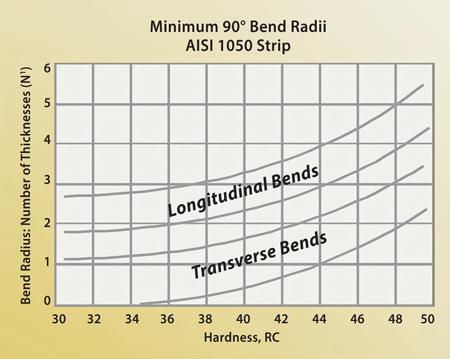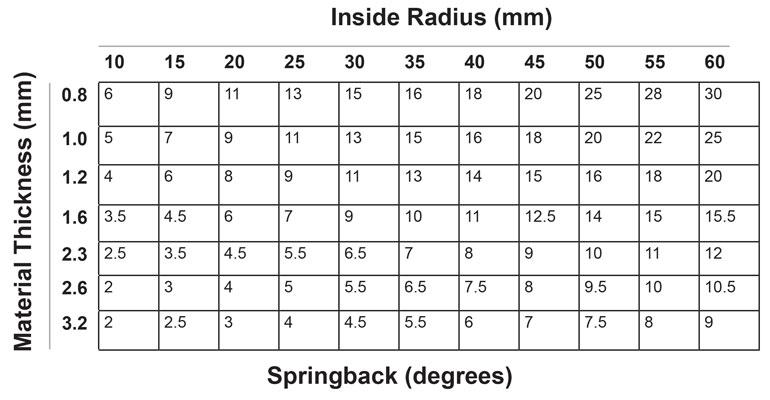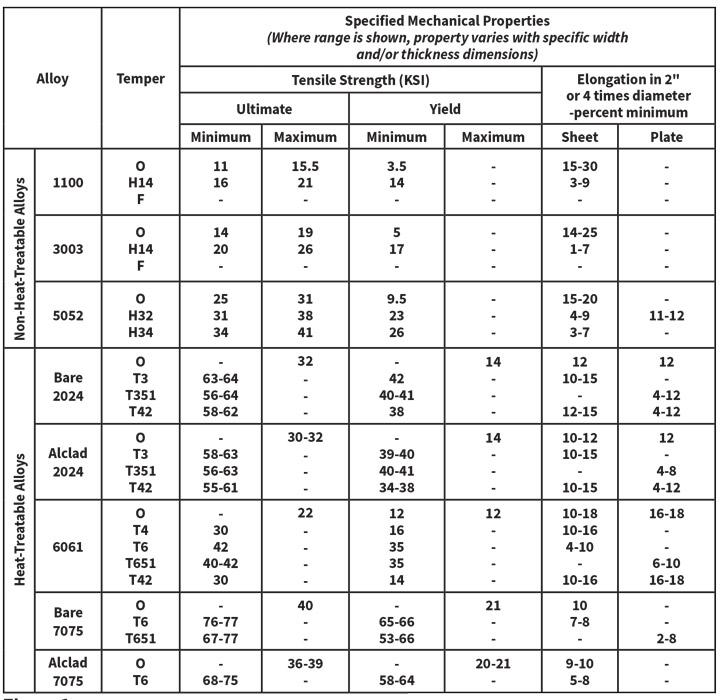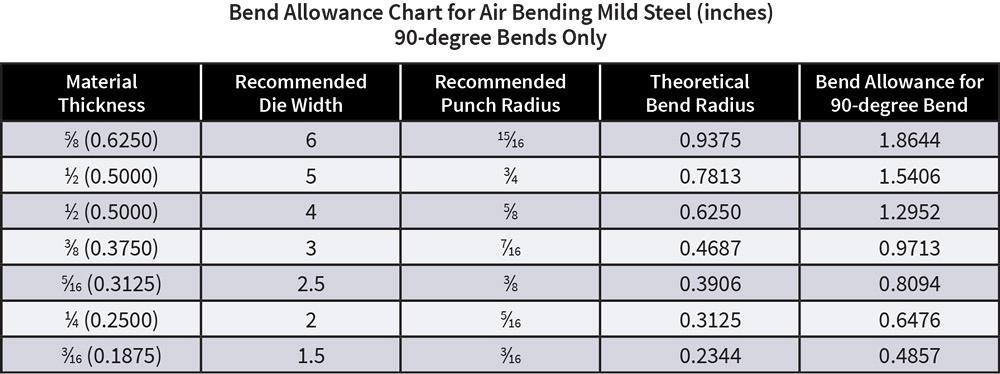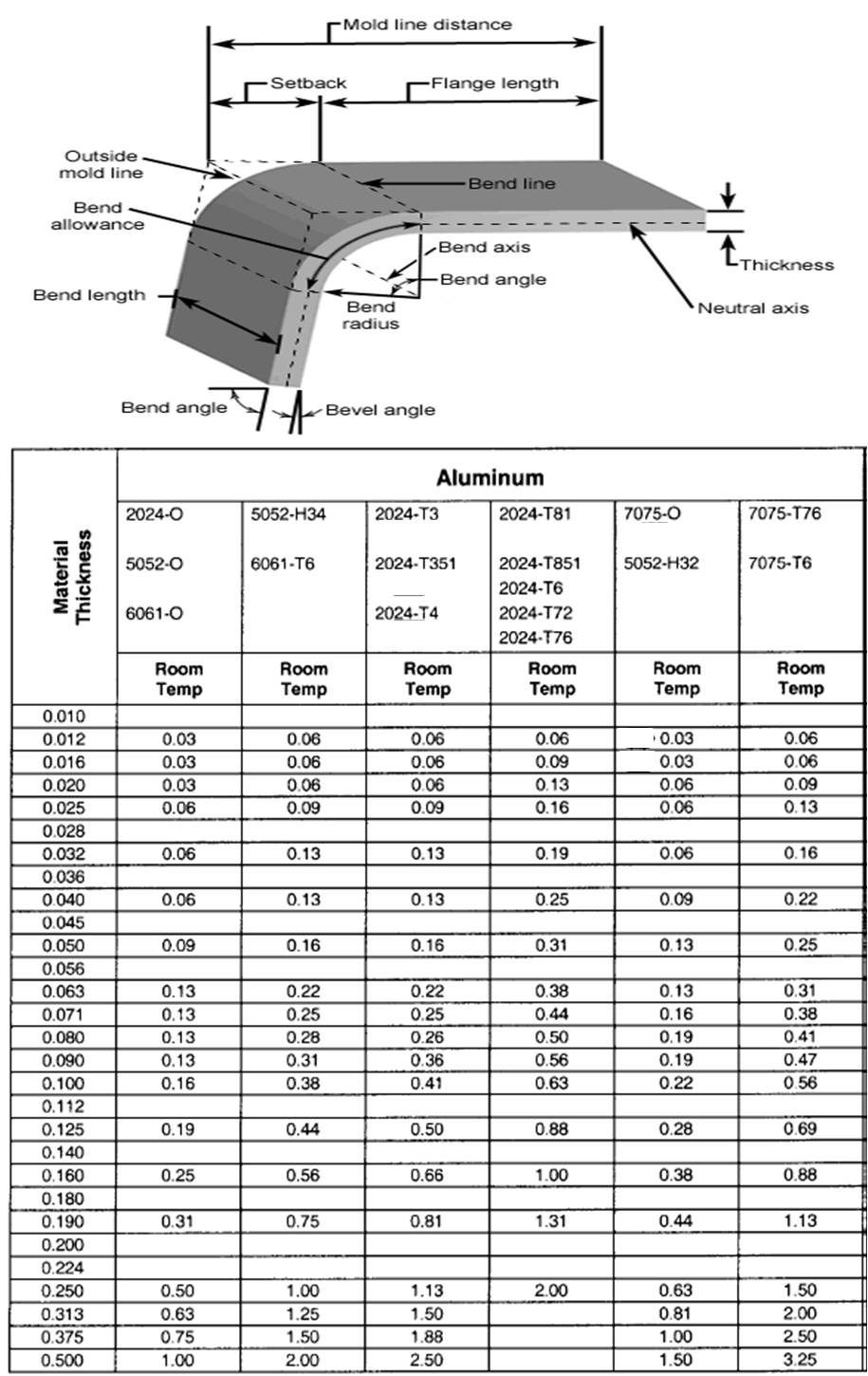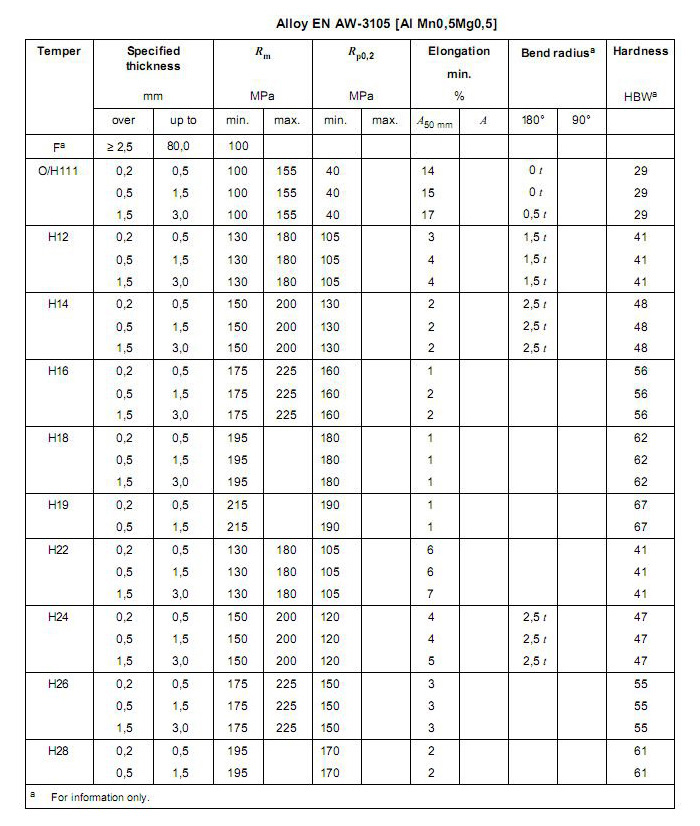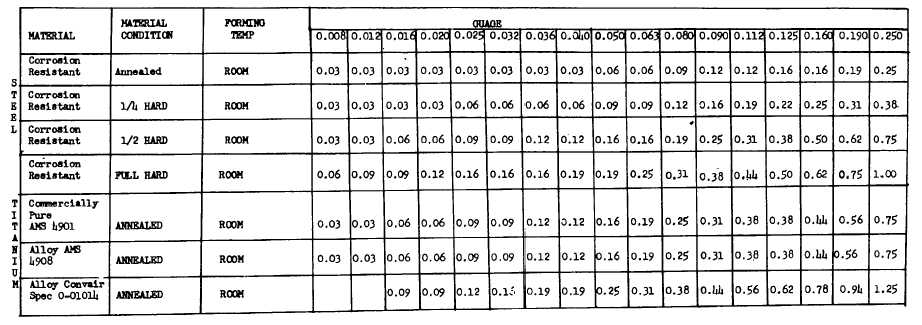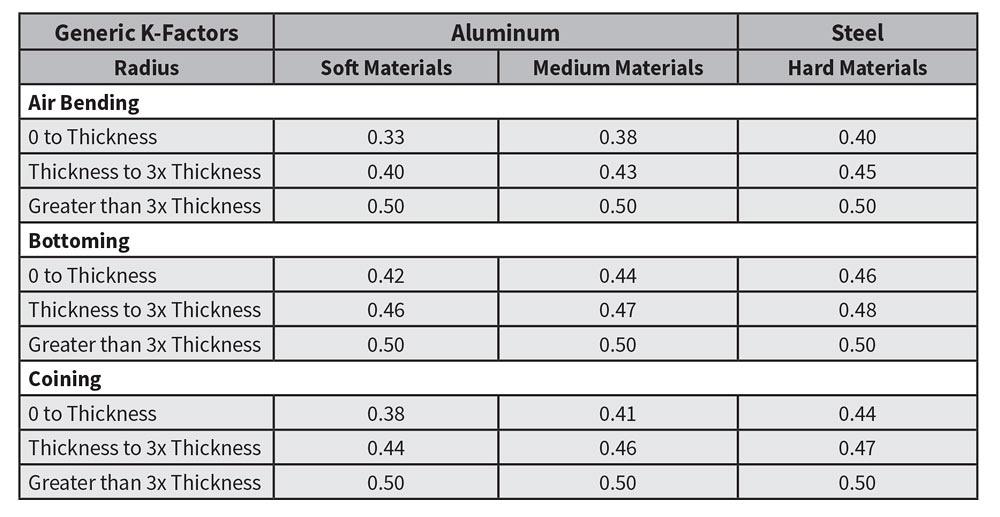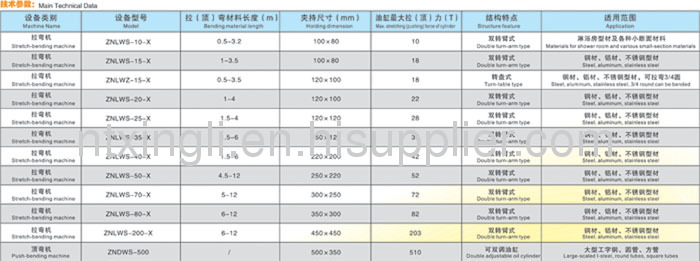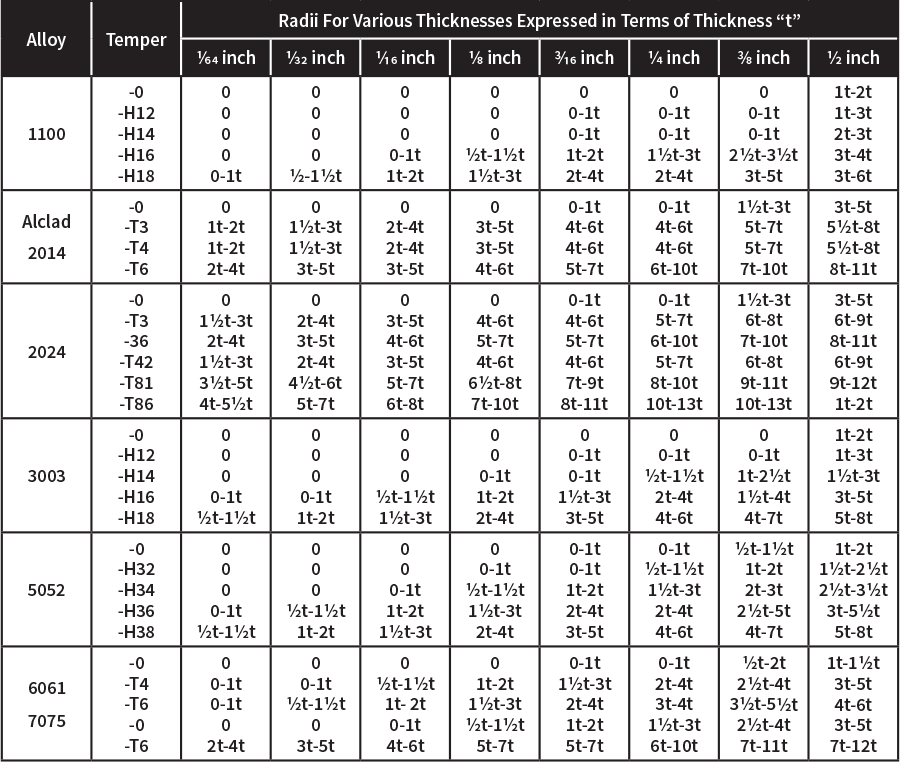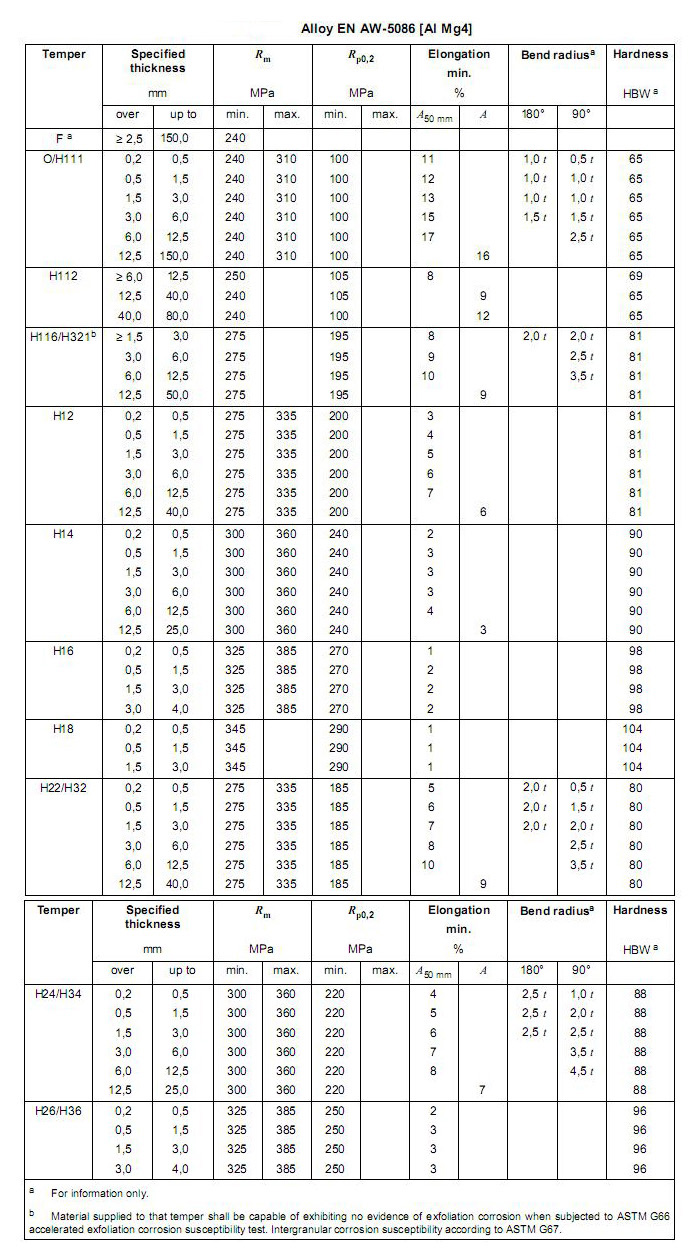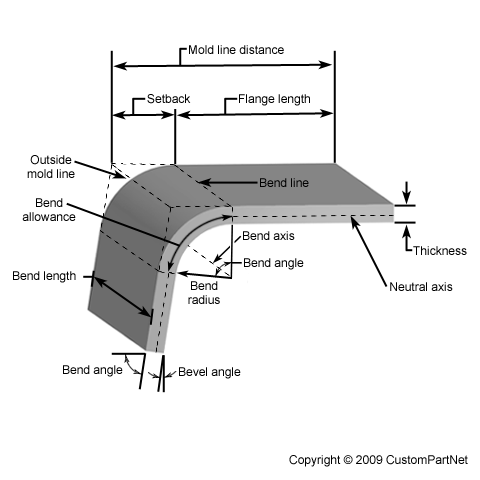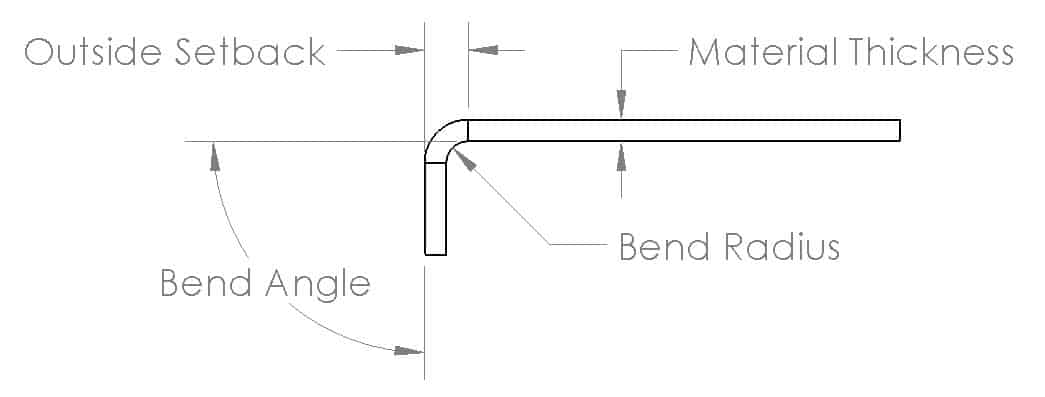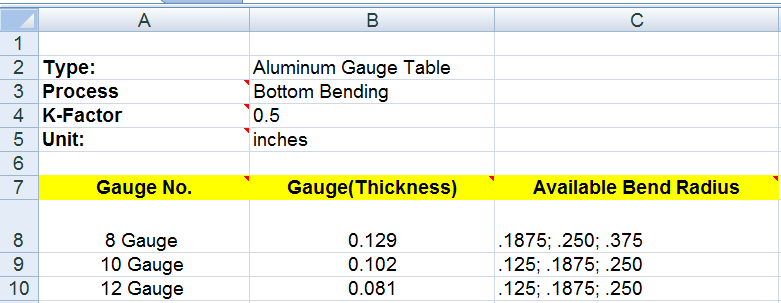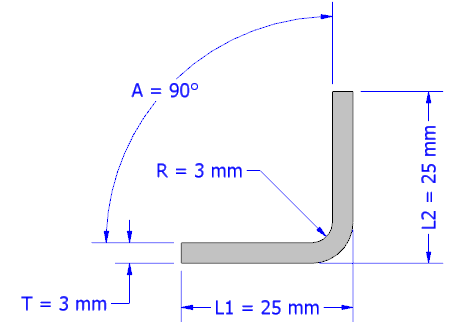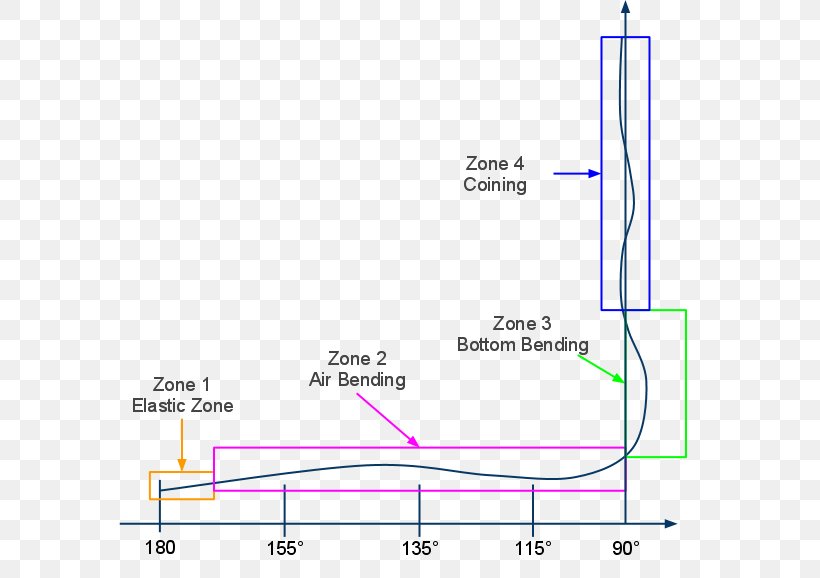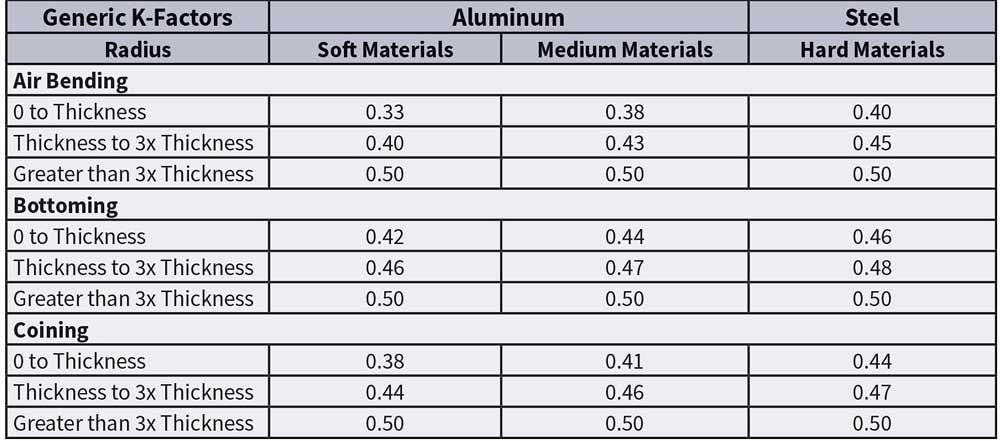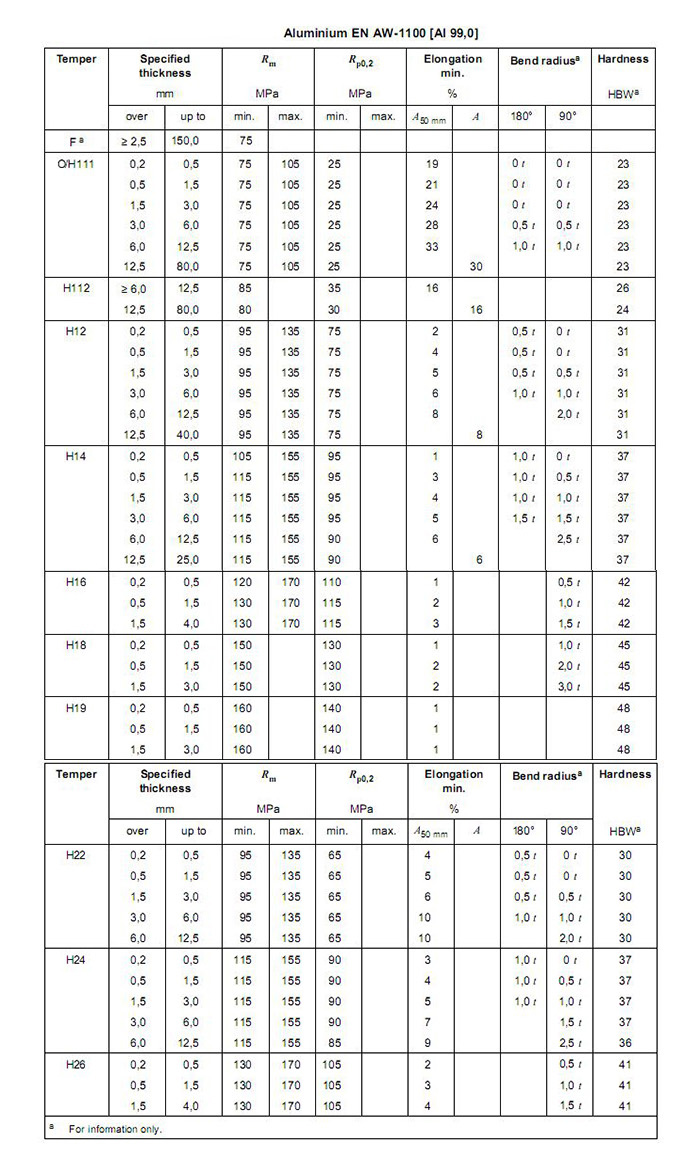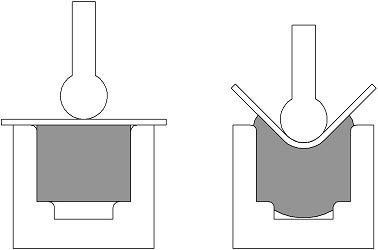Bending Radius Aluminium Sheet

Aluminum minimum bend radii for 90 degree cold forming of sheet and plate.
Bending radius aluminium sheet. The minimum bend radius data shown in these charts is measured to the inside of the bend. For most applications with stainless steel or aluminum you can get away with a zero radius bend on anything under 0 050 thick. A bending brake is a specialized metalworking tool used to create precise linear bends and folds in light gauge sheet metals like the kind used to make flashing for doors windows and roofs. Aluminum where necessary 5052 h32 may be bent to 1t and 6061 t6 to 1 1 2t.
When sheet metal is bent it stretches in length. Also known as press braking flanging die bending folding and edging this method is used to deform a material to an angular shape. The force must exceed the material s yield strength to achieve a plastic deformation. Steel american iron and steel institute 1 see aisi s fabrication guidlines for cold bending thk 6061 t6.
Purchase a metal bending brake online or at your local hardware store. Per the aluminum association inc. The formed bend radius is dependent upon the dies used the material properties and the material thickness. The bend radii listed are standard minimum if manufacturing for aircraft and aerospace applications.
Thereby forming a certain angle and curvature shape. If your bend radius needs to be adjusted a member of engineering design services team will contact you before your design is manufactured. Minimum sheet metal bend length recommendations. The bend radius refers to the inside radius.
If you re bending 0 020 thick material use a 0 020 radius. Minimum recommended sheet metal bend length. Commonly used bends include v bend z bend offset bend and hemming bend etc. In other words if you re bending 1 8 sheet use a tool with a 1 8 radius to form the inside of the bend.
Minimum sheet metal flange bend length is required to avoid cracks in the bending area. This is done through the application of force on a workpiece. The sheet metal bending height should be at least 2 times the thickness of the sheet metal plus the bending radius that is h 2t r. Bending is a stamping process that uses pressure to force the material to plastically deform.
Bend radius throughout the sheet metal design is kept constant to take the advantage of using the same tool during manufacturing. The bend radius you select may not be available if the geometry of the part will not allow us to bend with the specific tooling required to achieve that radius. The bend deduction is the amount the sheet metal will stretch when bent as measured from the outside edges of the bend.



